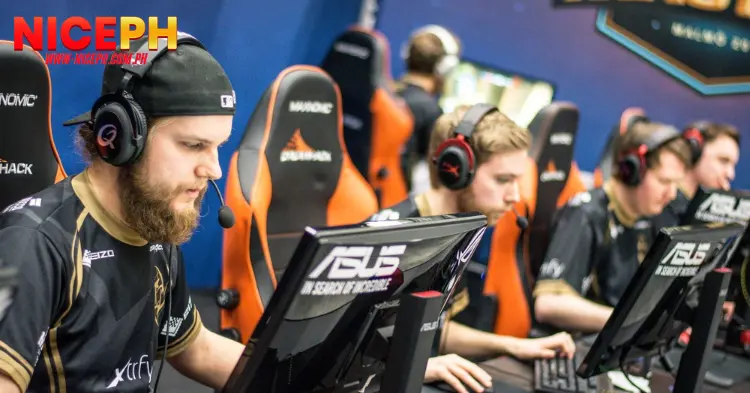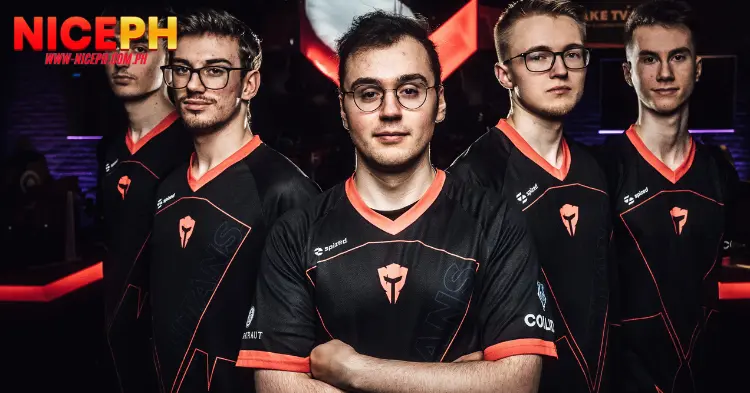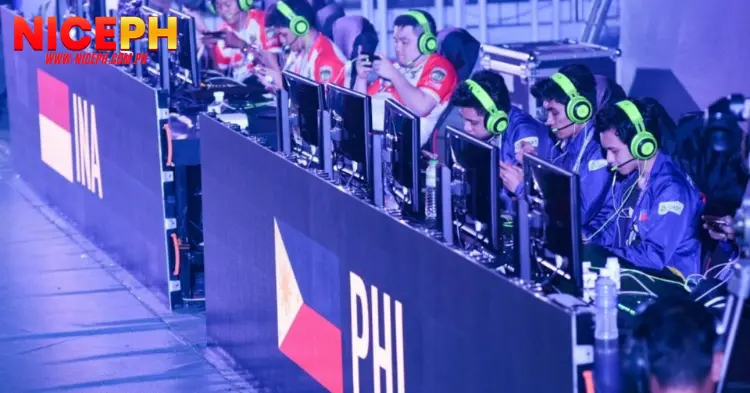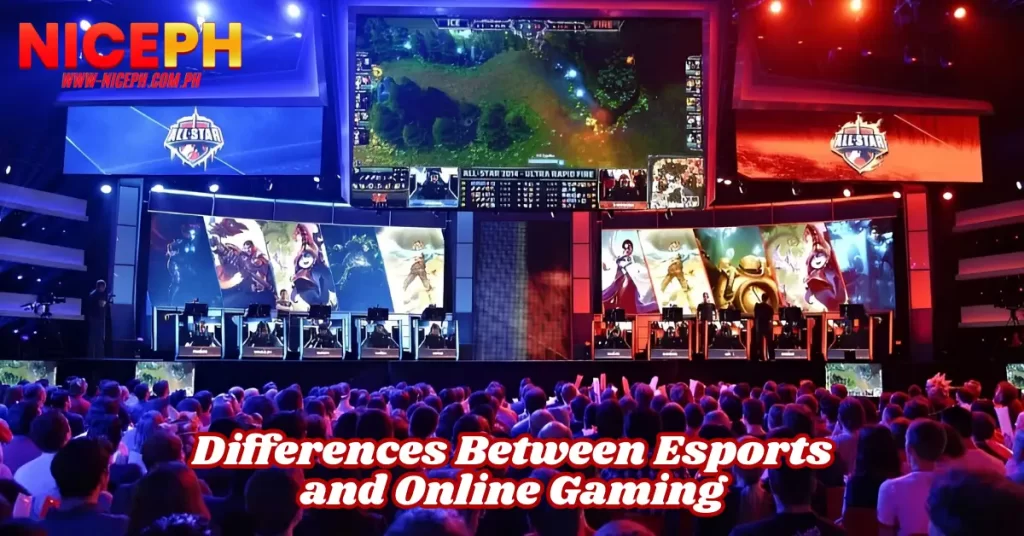Understanding the key Differences Between Esports and Online Gaming is essential as Esports continues to secure a prominent position in the entertainment industry. Information about million-dollar tournaments, how Esports athletes earn astronomical incomes, and tens of billions of pesos earned from large-scale competitions is easy to access for gamers.
However, in the Philippine gaming market, the “Esports” concept remains somewhat vague and is well known clearly only by industry insiders. Many young people often confuse “Esports” with regular online games. So, what are the differences between Esports and online gaming?
Let NicePH instruct you in this article to find out the most accurate answers!
How Esports Differs from Regular Online Gaming
Esports refers to competitive gaming involving video games (online games) played on devices such as PCs or mobile phones, particularly among professional players. However, not all online games qualify as Esports games.
The most significant distinction between Esports and regular online games lies in how success is achieved. In Esports, money does not make players stronger; skill is the primary factor determining victory. Specifically, in some games, spending money to buy items can equip in-game characters with better gear, making them stronger and giving them an advantage in battles.
But in Esports, players must survive and win purely based on their abilities, relying on skills developed through practice, ensuring fair competition.
Some of the most popular Esports games today include League of Legends, Dota 2, Arena of Valor, Mobile Legends: Bang Bang, and League of Legends: Wild Rift (categorized under Multiplayer Online Battle Arena – MOBA). Others include PUBG Mobile, FreeFire (Battle Royale genre), Counter-Strike: Global Offensive, VALORANT, and CrossFire (First-Person Shooter – FPS genre).
Leading global Esports game developers include Riot Games, Tencent, Krafton, and Smilegate, while the largest publishers in the Philippine market include VNG and Garena.
Additionally, for a game to be recognized as an Esports title, it must be certified by the International Esports Federation (IESF).
5 Key Differences Between Esports and Online Gaming
The Role of Money
In most online games, a player’s financial capacity plays a crucial role. Game publishers often design their games to extract as much revenue as possible from players. For example, they create powerful in-game items that give paying players a significant combat advantage. This means players who can afford to spend more money have stronger, more impressive characters.

As a result, many players feel pressured to purchase items to stay competitive continuously. This dynamic can lead to societal issues, as some impulsive players may resort to illegal activities to fund their gaming expenses.
In contrast, money does not enhance a player’s performance in Esports. While players with substantial financial resources can outfit their characters with more glamorous appearances, their skills ultimately decide their success in competitive matches. This is why Esports has gained significant popularity among young people. Professional players must rely on their actual abilities, talent, and systematically developed survival skills to win, ensuring fair competition.
Recognizing the Differences Between Esports and Online Gaming is crucial for those looking to explore long-term career opportunities in the gaming sector.
Educational Value
One of the main differences between esports and online gaming – both online gaming and Esports offer educational benefits, but the nature of these benefits differs greatly. In online gaming, educational elements are often minimal and focus on developing individual traits. However, rather than fostering independence, some players develop undesirable habits such as laziness (using auto-play features), deceit (cheating or hacking), or envy and jealousy.

In contrast, Esports emphasizes teamwork. To achieve victory, all team members must perform their best, develop individual skills, and coordinate effectively with teammates. Cheating in Esports is viewed as seriously as doping in traditional sports. Players caught cheating face ostracism from the gaming community and blacklisting by tournament organizers.
Time Commitment
Online games are often designed to be addictive, aiming to capture players’ attention for extended periods. Players may spend entire nights grinding to earn in-game items to sell or simply indulge their gaming passion.

Meanwhile, Esports does not demand as much continuous time from players. No matter how engaging the game, participants cannot play for prolonged periods with breaks. Each Esports match requires intense mental engagement, involving observation, evaluation, analysis, and decision-making. This level of focus leaves players mentally and physically drained, limiting their capacity for back-to-back matches.
Income and Career Opportunities
Browsing online news platforms often reveals stories of players earning hundreds of thousands of pesos from selling in-game items in online games. This creates the misconception that online gaming is an easy way to earn money. However, in reality, income from selling virtual items is often minimal compared to the effort required. Additionally, online games have relatively short lifespans, making this career path unstable for those seeking long-term opportunities.

Esports, on the other hand, offers a brighter outlook. Similar to traditional sports, Esports provides career paths such as professional players, coaches, and commentators. In the Philippines, the Esports industry has grown significantly, allowing professional players to earn substantial incomes and compete internationally.
One notable example is the Saigon Jokers team in League of Legends. Although they didn’t reach the finals, they earned ₱1 million in a recent World Championship in the U.S.
Societal Perception in the Philippines
A few years ago, both Esports and online gaming faced harsh criticism and negative stereotypes in society. They were often equated with unproductive and unhealthy activities that foster addiction, waste money, and contribute to societal issues. While online games still struggle to improve their reputation, Esports has gradually gained recognition as a legitimate sport, supported by global organizations and government policies.

Today, online games are incorporating Esports elements, such as features enabling competitive matches in high-end gaming lounges. This demonstrates that Esports is steering the gaming industry toward a healthier and more beneficial direction. This shift is a positive sign, allowing the younger generation to engage with a modernized and educational field.
=> Are you looking for a reputable and top-quality casino for betting? Try our partners: Ph777 Casino.
Although Differences Between Esports and Online Gaming – Esports: More Than Meets the Eye
The gaming industry, including Esports, is among the most intellectually demanding sectors. Very few are aware that most of today’s state-of-the-art technologies, artificial intelligence, blockchain applications, augmented reality, and virtual reality have first been tried and applied in the gaming industry, then later on to other industries such as health, education, and finance.
Every competitive, Esports-oriented game out there has a hardworking team working on its balance and feature development, including game developers, software engineers, AI specialists, IT professionals, and content managers.
The rapid growth in Esports further accelerated the growth of other sectors, such as the Internet service sector, investment, advertisement, and hardware manufacturing. It includes desktop PCs, laptops, mobile gadgets, processors, graphic cards, and audiovisual peripherals. With all those factors resulting from it, it turned into a billion-dollar industry and contributed significantly to the economy.

